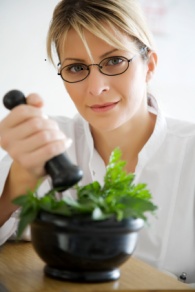
Following a Gall Bladder Diet Could Help You Avoid Surgery
A special gall bladder diet could reduce your risk of developing stones and complications caused by them. Researchers have yet to establish a clear relationship between what people eat and their risk of gall stones, because other factors, many of which are out of our control, affect the results.
For example, women are more likely to have problems than men. People of specific ethnic backgrounds, such as Native Americans and Hispanics, are more likely to have cancer of the organ. In some people, the organ moves more than it does in others. There may also be an inherited body chemistry that contributes to diseases affecting the organ.
Taking all of those things into consideration is difficult for researchers. Physicians refer to four or five “Fs” when they are discussing the risk factors. The “Fs” are fat, forty, female, fertile and fair. In other words, women aged 40 or over, but not post-menopausal, of Caucasian decent have the highest risk for developing the gall stones.
So, trying to determine which, if any, dietary factors affect or increase the risk is understandably difficult. But, if you have experienced only minor problems, it may be possible to reduce your symptoms and improve your overall health by following the gall bladder diet outlined here.
Let’s start with the foods to avoid.
Health writers are familiar with a group of problematic foods known as simple carbohydrates. They seem to increase a person’s risk of numerous diseases, general aging, wrinkles and gall stones.
Simple carbohydrates are also starchy foods, which is probably why they contribute to the development of stones. Foods to avoid include:
(A friend of mine says, "Don't eat anything white!")
It’s best to eat six to eight small meals every two to three hours, rather than three large meals. Research indicates that eating fewer meals per day may increase the risk of gall stone formation. So, following a gall bladder diet may not be helpful if you still eat only two or three large meals per day.
Low intake of specific nutrients such as folate, magnesium, calcium, vitamin C and omega-3 fatty acids has been associated with an increased risk of stone development. Regular wine consumption, on the other hand, has been associated with a reduced risk of stones. So, here’s a short list of foods to include in your meals:
It’s also a good idea to take a good multi-nutritional supplement to make sure that your gall bladder diet gives you all of the nutrients that you need. |
|



